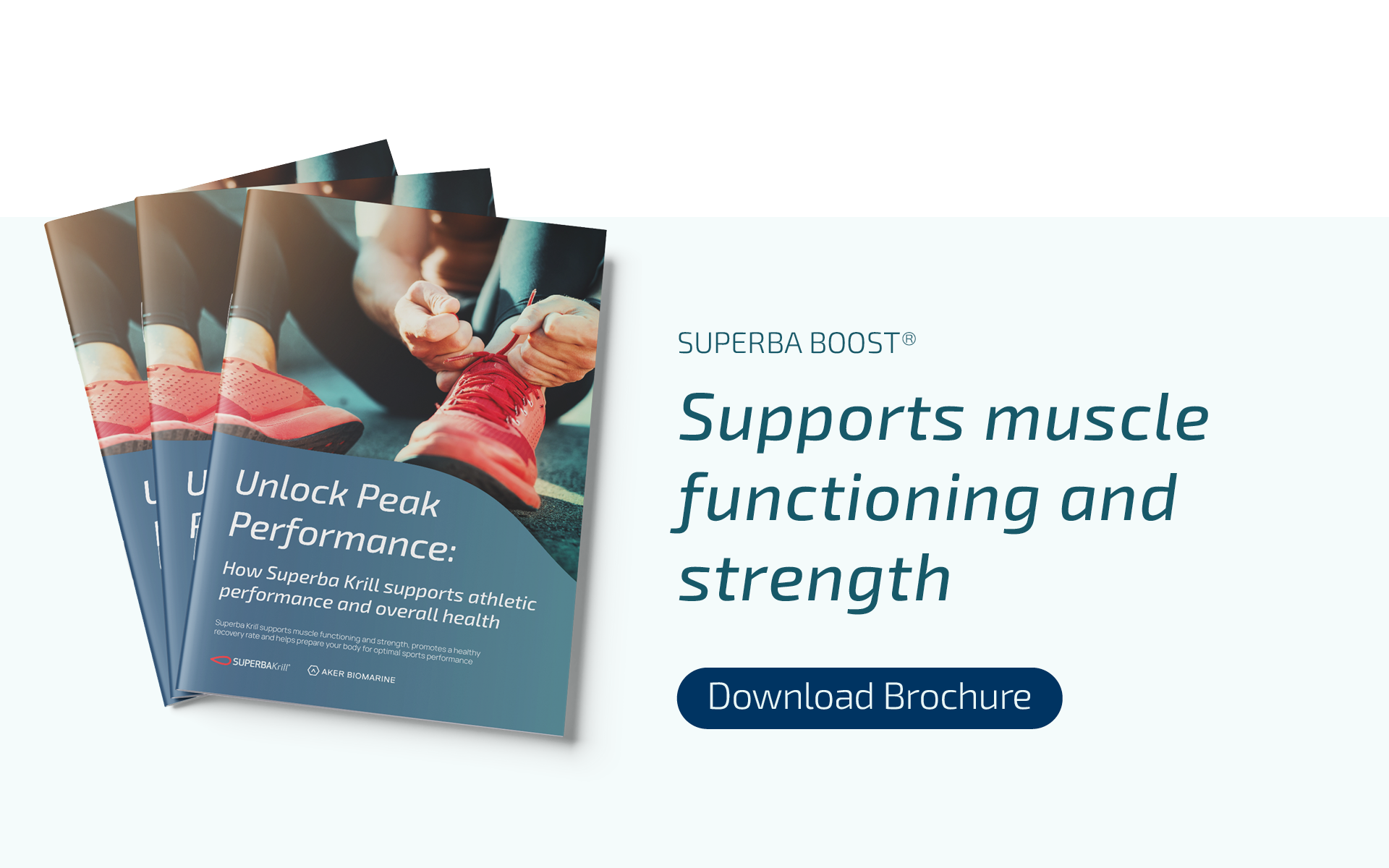A recent field study led by Aker BioMarine in partnership with the Oslo University Hospital (and published in Frontiers in Nutrition) investigated if pre-race supplementation with phosphatidylcholine (from krill oil) can increase levels of choline and some of its metabolites in athletes during triathlon competitions. This is the first time a field study like this has ever been conducted on this topic. Athletes who participated in the recent Norseman Xtreme triathlon (widely regarded as one of the world’s toughest and most coveted races) and the Oslo triathlon were studied.
The Norseman Xtreme Triathlon, one of the toughest races in the world
The Norseman Xtreme Triathlon is considered one of the toughest races in the world. The athletes race through some of the most beautiful landscapes in Norway, and those who are able to finish at the rocky peak of Gaustatoppen (located at 1,850m above sea level) can say that they traveled one of the toughest full distance triathlons on planet earth.
And in addition to the grueling physical aspect of the race, the weather can range from beautiful and sunny to windy blizzard like conditions, sometimes all in one day.
Unmatched by other extreme events due to its difficult and punishing severity, the annual ‘fjord to peak’ Norseman Xtreme Triathlon provides the ideal test with which to gauge just how important a role krill oil can play in ultimate performance.
Read more: Health Benefits
Test parameters
Forty-seven triathletes, ranging in age from 25 to 61 years, were recruited from participants in the Ironman-distance Norseman Xtreme triathlon and the Sprint/Olympic-distance Oslo Triathlon.
Twenty-four athletes were randomly allocated to the krill oil group, receiving 4 g of Superba Boost™ krill oil daily for 5 weeks prior to the race, and 23 athletes were randomly allocated to the placebo group, receiving 4 g of mixed vegetable oil daily. '
Blood samples were obtained before the race, immediately after completion of the race, and the day after the race for analysis of choline and its metabolites.
Read the full published study here.
Hans Christian Tungesvik, a world-renown triathlete who has won both the XTRI World Championship (at the Norseman Xtreme Triathlon (2019) and the IRONMAN World Championship Age Group M18-24 (2016)), is an avid proponent of choline derived from krill oil.
“I’ve included krill oil as part of my training regimen because I see a noticeable difference in my endurance levels during race day in addition to how I feel during my recovery period, even several days later. It’s encouraging to see that there is now science behind my own personal experience that may be helpful to athletes at all levels.”
Hans Christian Tungesvik, XTRI World Champion 2019.
Positive study results put choline and krill oil on the map in sports nutrition
Positive results show that the reduction in choline is dependent on race distance and that consumption of krill oil prior to endurance competitions increases overall levels of serum choline.
More specifically, serum choline was reduced by between 15% and 34% on average from pre-race to race finish in all races, but significantly higher concentrations of choline (9.4% on average) were observed in the krill oil compared to the placebo group. Furthermore, the krill oil group showed a significantly greater increase in serum choline from race completion to the day after the race.
The study findings demonstrate two main points. First off, krill oil targets choline depletion during physical activity. Secondly, krill oil should be included as part of an overall nutritional strategy for optimal training and race day preparation.
“There has been a worldwide increase in the number of people participating in endurance events over the past decade,” said Andreas Berg Storsve, MSc PhD, Director R&D, Aker BioMarine Antarctic AS. “Therefore, it’s imperative that we continue to explore nutrients like krill oil and their impact on sports nutrition.
This study supports potential benefits for elite as well as recreational athletes. The bottom line is that anyone engaging in physical activity can benefit from krill oil and the choline it contains.”


